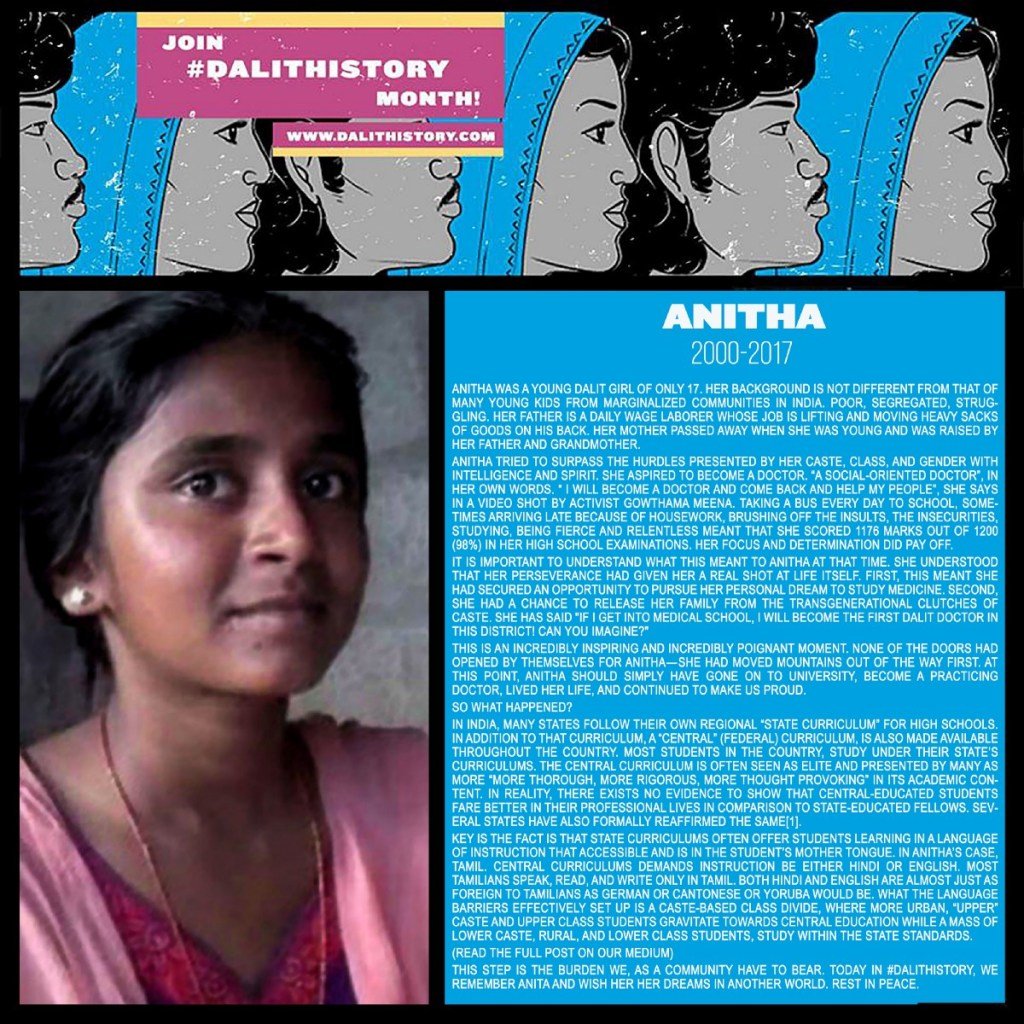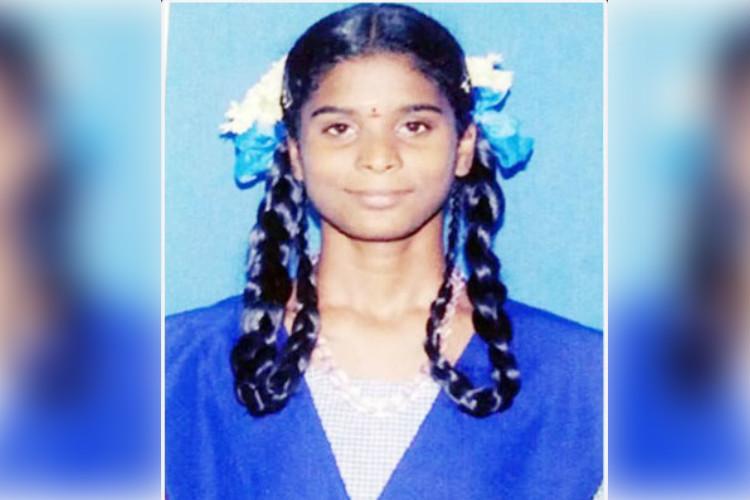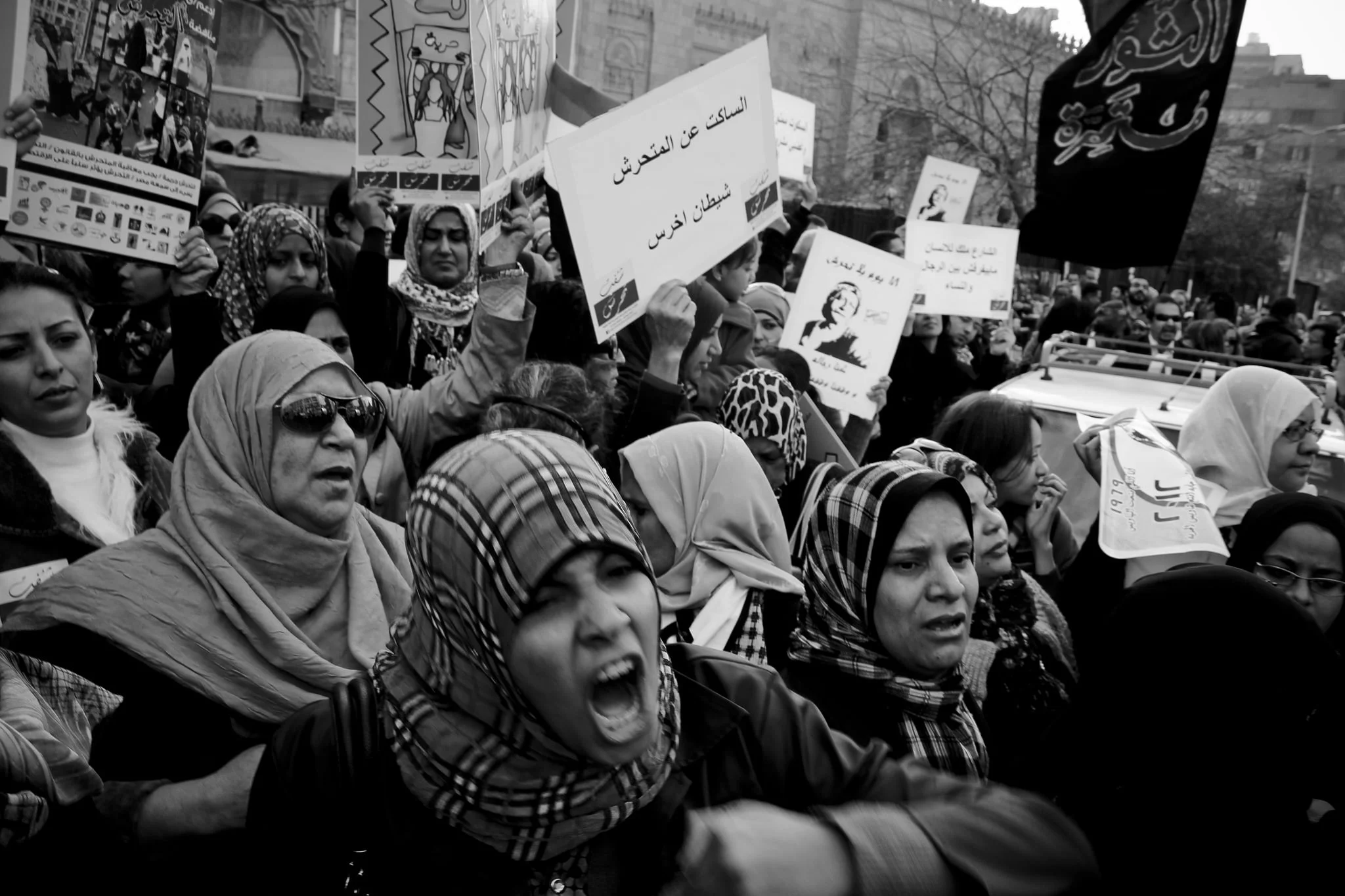The recent news of 17-year-old Subhashree from Trichy, Tamil Nadu who committed suicide following her dejection over her ‘failure’ to clear National Eligibility cum Entrance Test (NEET) was followed by another instance of 18-year old MBBS aspirant Pradeepa who also committed suicide after not being able to crack NEET.
While it can be misleading to report instances of suicide as owing to a single event, it is important to analyse certain common features that run through these stories.
These cases are symptomatic of a system that has been designed in a way that excludes certain groups. In the specific case of NEET, its exclusionary nature can be gleaned from its favourability to the CBSE syllabi, and the near-impossibility of clearing it without the aid of expensive tutorial institutions.
These structural disadvantages became especially clear after the suicide of Anitha, a Dalit student who challenged the imposition of NEET in Tamil Nadu, and was failed by a system which couldn’t measure or understand her brilliance. After scoring a brilliant cut-off score of 196.75 out of 200 in state board, she couldn’t clear her NEET exam, which was declared to be paramount. She was clear in her ambition to become a doctor for the society and not just for her own personal fulfilment.

Image Credit: Dalit History Month
Anitha’s story, and that of Subhashree and Pradeepa, are a testament to how Dalit women are constantly failed by our educational system. As much as this is a case of how and till what extent are standardised tests successful in measuring merit, it is also about the emotional distress and anxieties it places on students.
The debilitating effects of an exclusionary system become clear to us only when such extreme and serious instances come to light. However, countless other stories of students navigating through a deeply unequal system are left unheard.
anitha’s story is a testament to how Dalit women are constantly failed by our educational system.
The infrastructural barriers which girls face in accessing education have been widely acknowledged. It is equally important to take into account the emotional journey of students – especially of those disadvantaged by gender, caste, religion.
“As someone who was always seen differently in my Catholic school, mainly because I was Muslim and my parents chose to express this identity through their dress, I felt that my academic performance was supposed to compensate for my ‘otherness.’ My parents always felt that the school in various ways tried to undermine my potentials. So they always told me to stand out and prove them wrong about their perception that Muslim girls couldn’t do anything great,” says Zoya Hasan, now a graduate in college.
The basis of parental pressure therefore might not always be grounded in economic concerns over getting a ‘good job’ or making it in a world rife with competition, but in the hope of using education as means to overcome the marginalization endured by them and their children due to their social location.
“I once had a conversation with a parent whose daughter was my student at the NGO; who asked me very keenly how his daughter was doing. His daughter who was in 10th grade was super intelligent, so I let him know that she is great and that she should continue her studies further. He said that even her school teacher had told him that she was brilliant – otherwise he wouldn’t have been interested in educating her this far,” says Bhavika Gupta, a medical student, summarizing her experience teaching children from marginalised backgrounds for the NGO Abhipraay.
I felt that my academic performance was supposed to compensate for my ‘otherness.’
This phenomenon can further be understood in light of how certain groups in society that lack in economic resources try to make up for its dearth through a set of family ideas, expectations, norms and values to further their child’s educational dreams. On one hand strong parental involvement can ease a child’s deficit in socio-economic power, but it also leaves the child in an extremely stressful situation. The pressure to perform well, to justify your existence to the world and your family in spaces dominated by others, is too great a burden.
“I think girls do better in standardized tests like boards and NEET because it’s expected for them to excel. Their threshold is very high as compared to a boy’s. And this threshold is high not because parents want daughters to do better or because girls are inherently better than boys. It’s because excellence is the girl’s interest to her parents,” she adds.
The process of preparing for examinations itself can be exhausting due to the fact that “you have to give the same exams again and again in form of pre-boards, practice tests,” as Vidhu Gugnani, another student and MBBS aspirant, says.
“It can be a deeply isolating experience; replaying situations of how and when you’ll fail in your head whilst studying. Since, the whole idea you have of yourself is based on being a good student, you allow it consume your life,” notes Zoya.
In addition to pressures to perform well, there are also expectations on women, especially urban middle class women to plan their lives, careers and education around the prospects of marriage and setting up a family, thus limiting their dreams.
The pressure to justify your existence to the world and your family in spaces dominated by others, is too great a burden.
“It was my friend’s mother who once asked my parents why they were making me a doctor. Her rationale was that it’s a long course, ladkiyon ke liye theek nahi hai kyunki shaadi ke liye der ho jati hai. (This is not appropriate for girls as it will cause a delay in her marriage).”
Such instances of sexist behavior can be found outside of realm of family and relatives to the institutions which are supposed to help students achieve their goals.
“I actually stopped going to my coaching institute after a teacher was really sexist. I remember him saying to the boys when they weren’t being serious,”ladkiyan toh fir bhi housewife ban jayengi, tum kya karoge?”(These girls can still become housewives. What will you boys do?)”
This constant navigation of societal and familial expectation often involves limiting one’s own desires or betraying one’s core beliefs. It can be damaging for one’s self worth – especially so in the case of women.
We need to have a greater attention on instances of student anxieties in school. Schools, unlike universities, aren’t necessarily political spaces where a student can find institutions or people to champion her cause.
We need to take into account not just the pressures our education system puts on individual psyches but also the struggles a student has traversing through the burdens of his identity.
Featured Image Source: The News Minute
About the author(s)
Umara is pursuing her bachelors in history from St.Stephen’s college. Feminism to her is an evolving process, she doesn’t feel the need to define her version of it, because she comes from the belief of autonomy of the oppressed classes.




